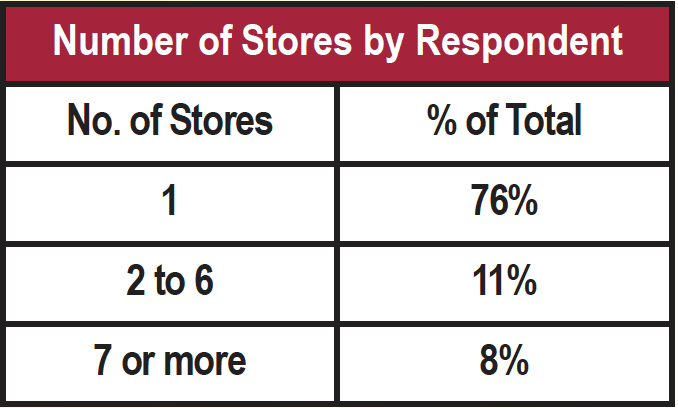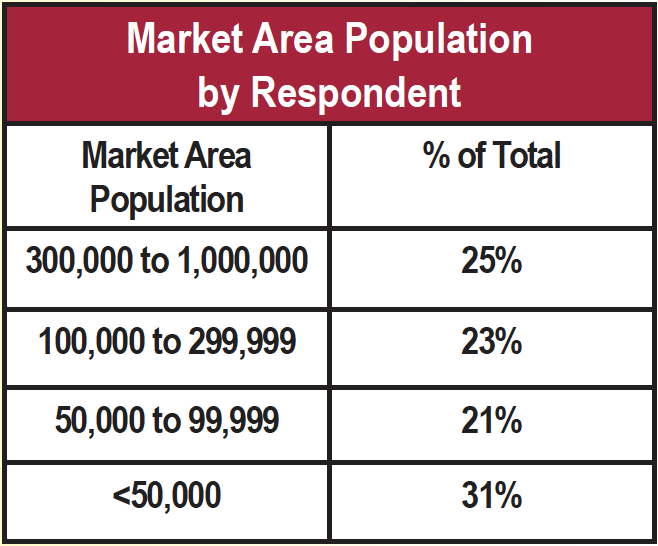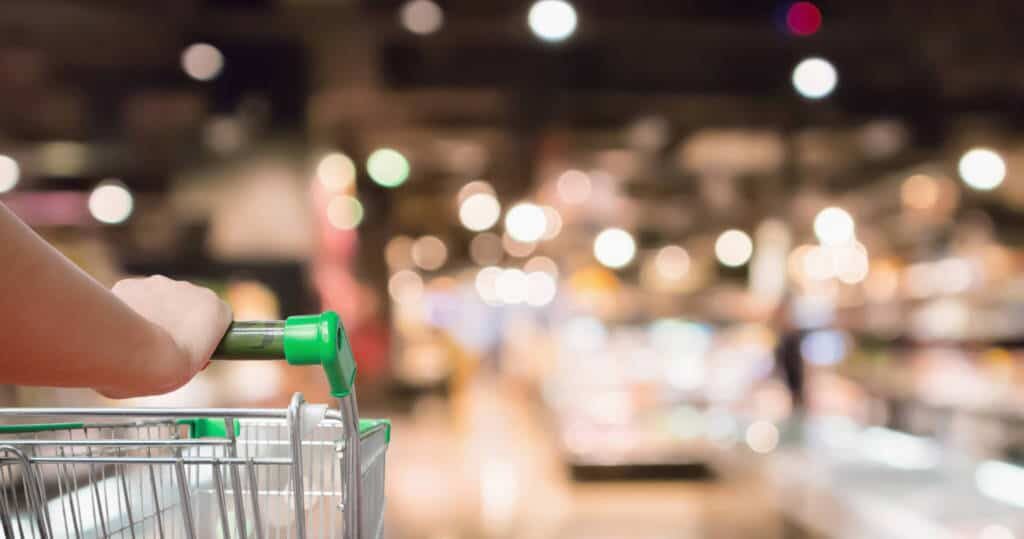This coming March, WholeFoods Magazine will publish the results of its 43rd Annual Retailer Survey of U.S. independent natural organic retailers. We are crunching those numbers now, but wanted to give you an advance look at what survey respondents were thinking as recently as October, 2020. Each year, we ask U.S. independents to tell us how their business is doing, and what is on their minds. Boy, did retailers sound off this year. So, what did independents tell us?
COVID-19 on the mind
Our first question in this year’s survey asked independents to tell us what was most on their minds, and no surprise, for nearly all respondents, it was the pandemic.Summing up the customer/employee situation eloquently, one Illinois retailer told us: “I found that the customers for the most part were very responsive to the demands put down by our Mayor and our Governor. However, then there are those that felt they were special and immune, not only to the COVID-19 virus but also to the rules put out to the public for the protection of fellow consumers and my staff. The burden was placed on the owners to make sure that the rules were followed, with two warnings and then a $250.00 fine. The stress of being called out on social media for seeing a shopper in our store without a mask, or being called a racist for asking a customer to please wear their mask, was a no-win situation and frustrating to all my employees. All my adult staff stayed on to work, and just recently, my student workers have decided to return to work, relieving the workload for many of us. We shortened our store hours and maintained a ‘10 customer-at-a-time’ shopping limit. The supplement aisle could not be big enough to maintain social distancing, however, so staff politely would ask customers to be patient.”
Also noting the competing, energy-draining forces, a Southern California independent shared, “It was pretty intense the first couple of months. Thankfully, it’s calmed down somewhat. This pandemic has definitely brought out the best and worst in people. I’ve been yelled at, cursed at. Customers berating others to the point of tears for buying too much. People are filling the carts higher to keep from leaving the house so much. I’m tired, we’re all tired. Our shelves still aren’t back to normal. I’m just so ready for things to get back to normal-ish.”
In Florida, one independent relates a positive impact on sales, on immune health, and of a higher power: “Being considered an essential business in our area, we were able to stay open. During the 30-day shut-down period, we went to curbside only. Most of our clients greatly appreciated this move. Some thought it unnecessary. After the 30 days, we opened to regular business. Using news [media] sources outside the U.S allowed us to have a better 360-degree visual of what we should expect [for the course of the pandemic]. Our staff are always on immune boosters due to the nature of our work. During this entire period no one has been ill in any manner. Our regular clients stocked up on immune boosters. To our knowledge, none have become ill with COVID-19. Our town had an outbreak about three weeks ago. When that happened several new shoppers came to load up on whatever would make them ‘feel’ better. We were able to assist. Later, we were told [by these customers] that the immune boosters we had suggested had great success! COVID-19 has not negatively affected our staff or business. The majority of our patrons have stayed healthy through this pandemic as well. We are very grateful for God’s grace.”
Throughout the nation, retailers are taking the extraordinary steps to make customers and employees feel safe, and as this Tennessee independent shares, those efforts lead to sales rewards. “We have had the best months ever since March. Our customer base has understood the importance of supporting the immune system. Our best sellers, as with others stores, have been vitamin C, vitamin D, zinc, quercetin, and silver. Our in-store program included five diffusers releasing essential oils; spraying hands with silver before entering the store; spraying door handles, counters, pens, etc. We have UV light on our air conditioners to kill germs in the air. Our customers felt safe coming in the store knowing we were keeping them and our staff safe within the store. The customers’ job was to keep their homes safe and their immune strong. We spent time educating on the importance of healthy food and managing acid/alkaline levels. We feel that during this period of time we had the chance to really get our customer base more interested in their health!”
While the pandemic sparked people to take a greater interest in wellness, retailers worked hard to educate them on the importance of research-backed, high-quality products. A small store in PA found a way to differentiate on product assortment, and is enjoying social media success: “Walmart sells some of the same products that I sell for less than I can buy them from my distributor. Ironically, during COVID we remained open and saw a large uptick in business. I credit the ‘shop local/shop small’ business campaign and also the fact that big stores sold out of products that we still had on our shelves. We do in-store baking and have seen a big increase in buying our gluten-free baked goods. Also, due to our Facebook page we are reaching a much larger audience. It’s been difficult predicting what people want and what we will be able to procure for our shelves. Here’s hoping things calm down soon.”
Keeping up with demand has been challenging for many. A New Jersey independent told us about customers’ shifting shopping habits, the difficulty of explaining out-of-stocks, and which departments suffered most: “We put our products on a website back in April 2020, to help customers shop without contact. We have curbside pickup. Originally we were swamped with business, both in the store, then with phone orders, and then online shopping. It seems we were tightening down our rules and hours by the week. Customers and staff remain in a state of shock that gets expressed in a variety of ways. We did have customers that protested the mask rule, the one-person-per-family rule, and the no-return policy. We still see people who don’t understand the problems with the supply chain; why we can’t get certain products or why the special peanuts are not available. We have many lovely customers who are appreciative and express it. We also have customers who have no problem screaming at a staff member or another customer, to try and get what they want. Rudeness seems to be much more evident. Now in August, the online ordering has slowed dramatically, and the business seems more uncertain than ever. While people will always need to buy food, some of the other departments in the store have definitely suffered, like the deli, bakery, and bulk.”
Being a small store brings struggles—and benefits—as one California independent shares: “We are a small, 1,000-square-foot store that has been in business for over 50 years. In March...we had the biggest month ever, almost twice our monthly average. Then we were out of stock on all of the immune products people were looking for. Getting new stock proved to be almost impossible. The major distributor we deal with was shipping cases and pallets to big retail chains and couldn’t be bothered pulling small-time orders from independents like us. We set up call-in orders for customers and continue that now but have never shut the store as our local customers do not want to face going into large stores. Most of our clientele are older and cannot risk that exposure. Our employees have been consistently supportive and we are managing to keep things rolling along!”
Echoing the frustration with out-of-stocks, an Idaho retailer told us, “We are located in a very ‘safe zone’ for COVID. None of our employees freaked out, or did not show up to work, or panicked. Our biggest challenge is the supply chain. In the middle of August we are seeing 50% to 80% out-of-stocks from the biggest national brands of supplements and foods. If we had inventory to sell, we would be heading towards a record year.”
That retailer wasn’t the only one to talk about losing sales, and unmet expectations. A Virginia retailer shared, “COVID-19 has had a major impact on our business. Sales have been down anywhere from 25% to 75%. Things are starting to look better now but it will still take a long time to recover from this. The staff has adjusted well to the changes; masks, gloves, constant sanitizing, etc. But recently we’ve had to turn away customers who are unwilling to abide by these new rules, so we are losing sales in that regard. I thought the natural remedies for immune function would keep us afloat during these difficult times, but sales are considerably down from where they should be.”
Connecting the dots between out-of-stocks and the Internet, an Ohio retailer reported, “We are experiencing many of our products ‘out of stock’ from our distributors. A break in availability is damaging to our regular customers that depend on us. Several have sought Internet sources, which is a bad practice for our customer base.”
Yet another Virginia retailer talks about changing business model, being an essential business, and maintaining strong sales: “It has been quite a year. We have gone through changing our business model, removing one self-serve fresh food case, shutting our hot, soup, and salad bars, and remerchandising with bakery, crackers, and other similar items. We added online ordering. And we’ve been implementing new government regulations and dealing with an actual case in the store, as well as some negative social media. Every day seems to bring a new challenge but all in all our business remains strong and we are grateful we have been one of the essential businesses.”
Respondents at a Glance
- 90% of respondents to WholeFoods 43rd Annual Retailer Survey were store owners or upper-level managers, with the remaining 10% direct-store or general operations managers.
- 76% of respondents own one store; 11% own two to six stores; 8% own seven or more stores.
-
 Survey respondents operate in every region of the country, with stores in 42 of the 50 states.
Survey respondents operate in every region of the country, with stores in 42 of the 50 states. - Respondents represent a balanced cross-section of every type of market area: large cities or major metropolitan areas; medium-size cities, small cities, and large towns or rural areas.
-
 As in past years, stores in our survey vary in age, from less than one year old to 84 years in business. Average for all stores in the survey was 31 years in business, with 24 years under current ownership.
As in past years, stores in our survey vary in age, from less than one year old to 84 years in business. Average for all stores in the survey was 31 years in business, with 24 years under current ownership.
Navigating the “boon and bust”
Additional stressors retailers are dealing with: changes to staffing policy, hazard pay, safety protocols, employee absenteeism, and the pandemic’s continuing negative impact on sales. Another independent in Pennsylvania painted the picture for us: “We began by implementing a mandatory employee mask protocol and voluntary customer [mask] policy in April. Customers who object to the statewide mask mandate and social distancing had been vocal and hostile, creating stress on staff, but that has subsided. In addition to that, we reduced our hours and divided our staff into teams who worked set schedules. Soon after, Pennsylvania implemented restrictions on businesses, mask policy, etc. We created a preparedness plan and communicated with staff several times a week on State mandates, business protocols, and updates.“Some of our staff opted to not work due to fear while others were very happy about the policies to protect them. We had a hazard pay installed that ended in June when we brought all of our full-time staff back to full-time hours and reintegrated the team. We kept our limited hours. Sales hit a peak and then nosedived and have not recovered, and we are currently only achieving half the daily sales we had pre-COVID. We are on a hiring- and purchasing freeze, have canceled and not renewed advertising contracts. We still have a high rate of employee absences, since COVID has so many probable symptoms and getting tests and results back here can take two to three weeks.”
“Boon and bust”—that’s how one independent natural products retailer in Oregon classified the year. “The pandemic has been both a boon and a bust. Incredible sales in March due to the panic and then a slow and very concerning slowdown in April and May. A boon with the PPP to help get us through the tough time, but a bust with key employees on ‘furlough’ garnering unemployment benefits—both state and federal—exceeding their usual wages. But we are resilient. We survived and are gaining back our customers and our team. We move forward a bit more streamlined—reduction in hours a bit so we all have down time to rest. In this we all have to rethink, retool, and remain confident that what we do helps our community stay well.”
Not all have been so resilient. A Massachusetts retailer shares, “This has been a horrible time. Employee reactions were unpredictable and as the problem lingers, everyone is losing whatever minds they may have had. There has been no way to plan for product because so much of it is out of stock—even if the product has nothing to do with COVID-19. Customers are crazier than ever. They are asking for incredibly weird products. So...it is almost impossible to run even a moderately successful business.”
In Western Pennsylvania, one retailer bemoans new security measures: “We have many customers concerned about others not wearing masks, and in our state there is an exemption for medical conditions—meaning those who cannot breathe with the mask on. Unfortunately you cannot ask someone for proof, so we regularly have upset customers and staff. We hired full time security to manage our customer counts, and in today’s culture, an armed guard causes anxiety for many shoppers.”
A Michigan retailer vents about the government, and employees: “I don’t like the executive orders that are not law but our governor expects us to enforce. Most of our customers are pleasant but some are very much freaked out. We offer shipping, curbside pickup or shop in-store. I had one employee leave and never come back—didn’t get unemployment. Two employees stayed home for a month and then cut their hours to three days vs. five days. One agreed to work an extra day per week. I as the owner had to work 100 hours a week to pick up the slack. I hired a full time and part time person after 45 days of that. Things seem more normal for June, July and August. We allow medically exempt employees and customers in store. I worry more about government control than I do COVID.”
Dealing with government mandates has caused issues for many. A retailer in Florida suggests a coordinated industry response: “I consider a supplement and herb shop an essential business. This is why, when my county determined it wasn’t, during the lock-down, I stayed open anyway, and providing curb service, mail order, and local delivery. There needs to be a cohesive effort to establish vitamin stores as essential.”
For an Alabama retailer, managing expectations has been key. “Managing expectations is the theme. Customers and employees have needed to know that we are concerned about keeping things safe for them. We’re seeing new customers who are very open to talking about how to stay healthy with supplements. People asking a lot of questions. They are glad we’re here.”
Our thanks to all the retailers who shared their experiences. And look for our full survey results, including total independent natural organic sales, and natural organic sales from all eight U.S. food retail channels, coming up in March! WF
Part 3 of 2020 Year in Review, Calls to Action, is available here.
Short Takes
On the highs and lows of sales....“Business is good, will get better, and people are looking for alternatives to medicine doctors are recommending for COVID-19.” — California retailer
“We have experienced a pick-up in new people coming in. We are selling more grocery items as people do not want to go to larger stores.” — Michigan retailer
“Sales are strong as a result of increased demand for in-home eating/cooking. Our customer count is down, and average purchases up, from buying more, less often.” —Nebraska independent“This has been very stressful for our entire team. However the entire team has stayed on to work and not collect unemployment. Astonishing. We have been open since the start of COVID-19. Masks required or face shields. Sanitizing like crazy, every day. Sales are up!” —Colorado retailer
“Mostly the sales are up, except in Wellness, because I think people are buying more online.” —Oregon retailer“We were able to really serve in a great way during the COVID. We realized that our customers want one-to-one service.” —Alabama retailer
“We are very busy and doing well but shopping patterns have changed. We have to work harder to make the same money. Customers aren’t buying vitamins and the other higher price things. It takes a lot more staff to sell the rest of the store.” —Maine independent“[S]ome of our customers are getting used to internet shopping and like the convenience of not having to go out. We are not having any special events that would attract too many people to be in the store at one time. All of this contributes to the 20% drop in sales.” —New Hampshire independent
“Customers are still anxious about coming indoors, and are buying more ‘comfort’ items. Sales are way down and employees were hard to get to return with the federal unemployment supplement.” —Minnesota retailer“On my mind: Food accessibility in the face of economic downturn, navigating the challenges of anti-maskers, worrying about out-of-stocks, worrying about keeping my staff safe and responding appropriately to new threats.” —Pennsylvania independent
On masks, mandates, and more...
“Mask wearing seems to be a major issue for people on both sides. Our policy is: If you are wearing a mask you are welcome. If you are not, we are assuming you have a medical reason not to and are also welcome. Our policy is to treat everyone with dignity and respect.” —Texas retailer
“Customers have been calm asking intelligent questions regarding immune system support. Most consumers are convinced this is a political ploy.” —Colorado retailer
“More customers are looking for immune/flu products. So many customers have bought into the hype by the politicians that COVID-19 is ‘THE WORST DISASTER THE WORLD HAS EXPERIENCED,’ and only the politicians can fix it.” —Washington State retailer“Afraid COVID-19 may make insurance unaffordable.” —Michigan retailer
“Concerned that the Charlatans and Snake Oil Salesmen hawking bogus COVID-19 remedies are giving the natural health products industry a bad name.” —New York retailer“When can we get back to industry events and shows to connect?” —Minnesota retailer
...and putting it all in perspective:
“I could repeat what I’m sure many will write, and what I hear throughout the day. Rather, I’ll share one observation: People’s reactions and perspectives vary widely, and have more to do with their comfort with change and uncertainty, than with their relative circumstances. This too shall pass, folks. Let’s be grateful for what we have, starting with life and family.” —California retailer










